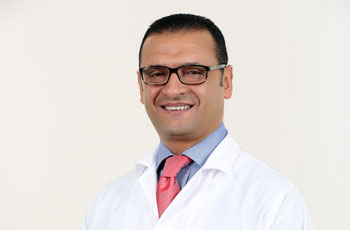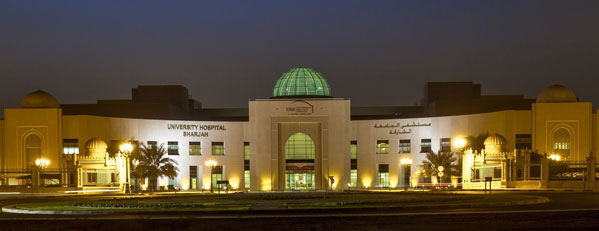 UAE, Sharjah, 3 February 2016 – University Hospital Sharjah (UHS) is marking World Cancer Day, 4February, with an awareness programme to educate people about early detection and prevention of the deadly disease. One in three people in UAE suffers from Cancer, with poor 5 years average survival rate compared to the rest of world because cancers are not diagnosed early.
UAE, Sharjah, 3 February 2016 – University Hospital Sharjah (UHS) is marking World Cancer Day, 4February, with an awareness programme to educate people about early detection and prevention of the deadly disease. One in three people in UAE suffers from Cancer, with poor 5 years average survival rate compared to the rest of world because cancers are not diagnosed early.
Cancer begins when cells in a part of the body start to grow out of control and it is a worldwide problem that sees 12 million people diagnosed with cancer per year, with four million dying prematurely (aged 30 to 69 years) due to the disease.
Dr Riyad Bendardaf, Head of Oncology and Senior Consultant at UHS, said that ensuring enough people are educated to the dangers of the disease remains one of the biggest problems to prevention.
“Cancer, detected at an early stage, is often curable and undergoing yearly tests is a way for patients to give themselves a much better chance of survival,” Dr Bendardaf said.
Currently, there is no accurate information so the exact number of people stricken with the disease and the subsequent mortality rate is unclear. UAE Ministry of Health (MoH) figures do, however, show that cancer causes around 500 deaths annually to UAE citizens and residents. The most common cancers in the UAE are of the breast, colorectal, prostate, lungs and gynecological cancer.
Dr Bendardaf says that people may not be getting themselves checked for a number of reasons. They can range from not knowing what they can do to prevent or manage the disease early, cultural constraints, or simply out fear of being diagnosed – meaning people put off getting tested.
While breast cancer is one of the more publicized forms, with a worldwide awareness campaign held every October, Dr Bendardaf says that women in the Gulf region should start self-examination from 25 years of age onwards. Breast cancer can strike 10 years earlier than the world average, which currently is 40 years of age in the UAE.
If there is a history of breast cancer in the family, physicians advise women to be screened from the ages of 30-35.
While no definitive study outlines a specific trigger or cause for cancer, a growing number of cases are attributed to factors such as genetics, environmental factors and poor dietary habits. However, worldwide experts do agree that a healthy diet and regular exercise can markedly reduce the risks of getting the disease.
“Cancer can strike anywhere in the body and it is important that people with other health conditions such as diabetes, high blood pressure and obesity, take additional care and are checked more regularly. Being diabetic and obese increases the chance of colon, liver, breast and stomach cancers,” added Dr Bendardaf.
According to the World Health Organisation (WHO), 19 percent of the UAE population is diabetic and more than 60 percent of men and women are either overweight or obese.
The Paris Charter, adopted at the World Summit Against Cancer for the New Millennium, in the year 2000, established and designated 4 February as “World Cancer Day”.
The Charter aims to promote research for curing as well as preventing the disease in order to save the millions of lives that are lost due to a simple lack of awareness and education.


